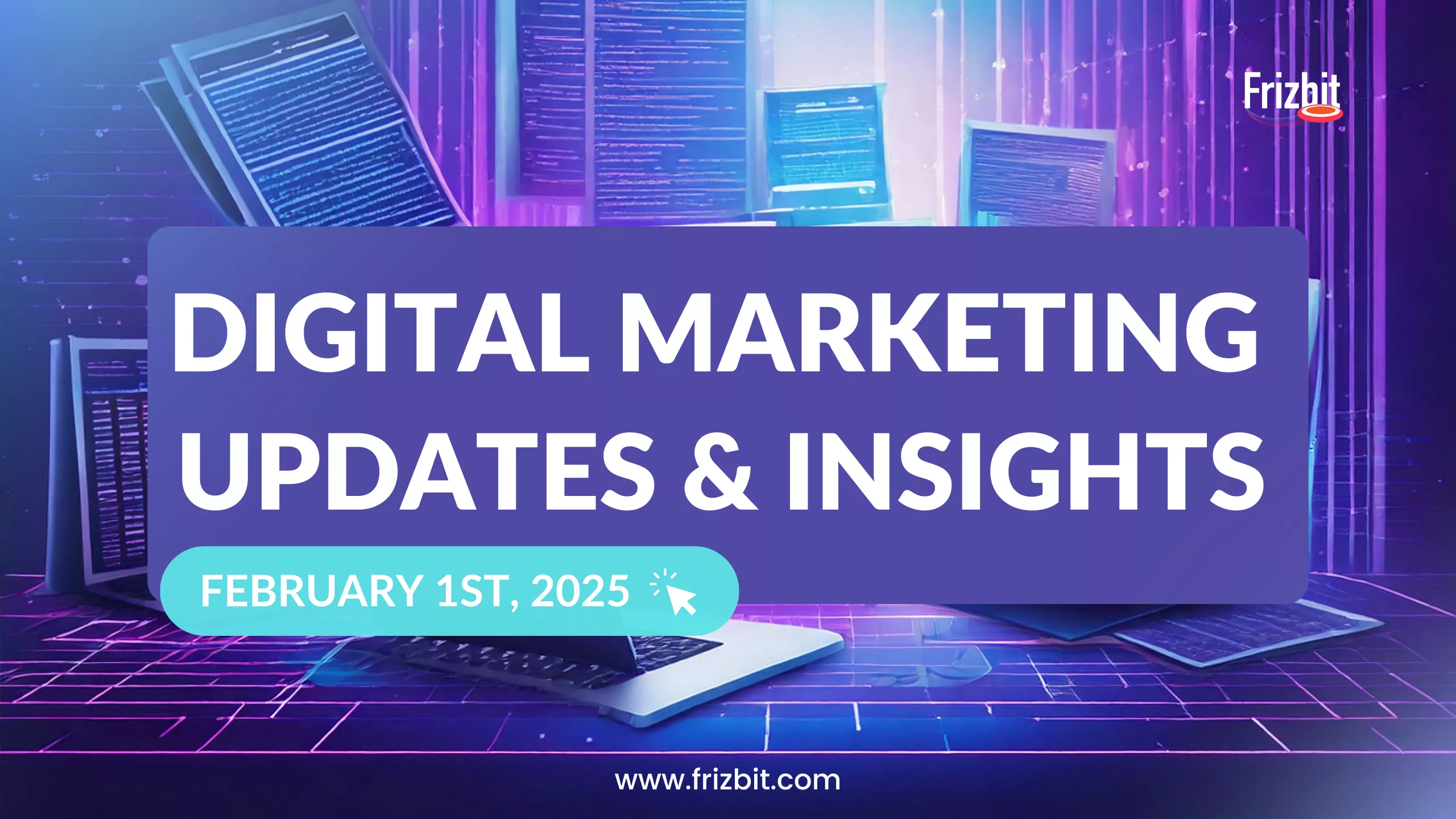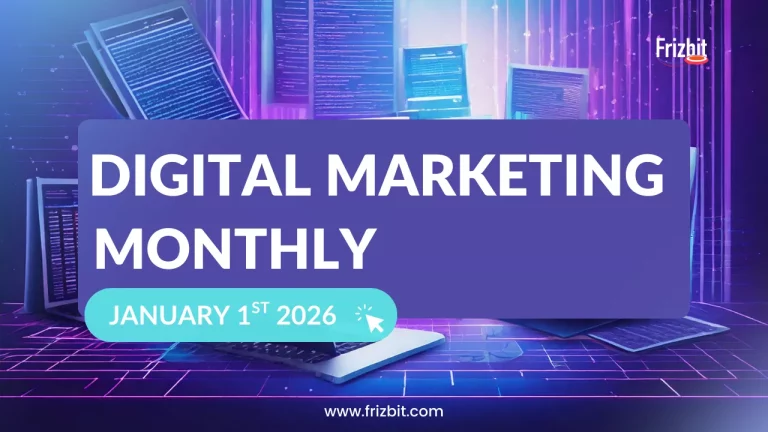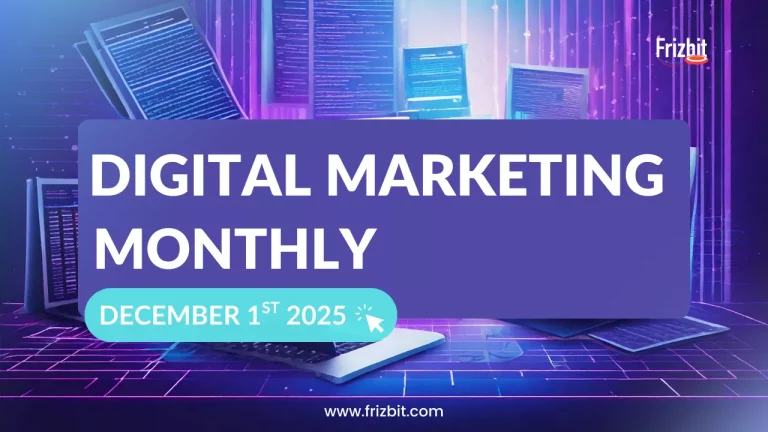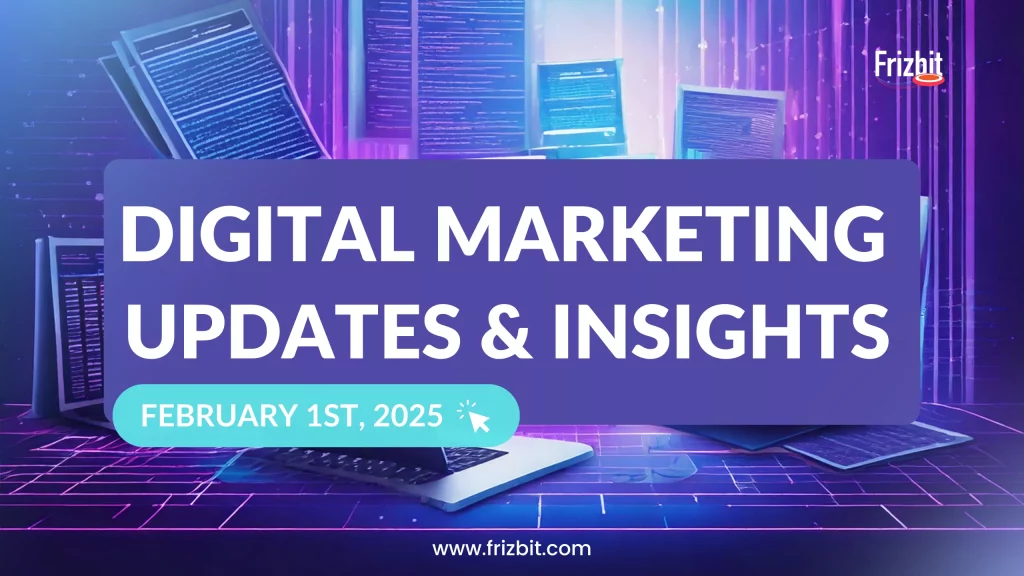
Welcome to the Digital Marketing Updates and Insights for January 2025! 💌
From Google’s major AI search changes to the ironic twist in the TikTok ban story, this month is all about how AI and data privacy are reshaping digital marketing.
Speaking of changes, Google’s new AI phone assistant is already turning heads (and making calls!), while marketers are racing to adapt their SEO strategies for an AI-first world. Ready to see how these changes might affect your campaigns?
Remember when we said first-party data would become crucial? Well, with these latest updates, it’s clear that 2025 is the year of owning your customer relationships.
Here’s what we’re unpacking this month:
- Search Marketing Updates: Google’s changing the rules (again!) and no, SEO isn’t dying – but you might need to rethink your approach
- Martech Updates: Meet Google’s new AI phone assistant and discover Otterly AI, your new favourite tracking tool
- Social Media Updates: The surprising twist in the TikTok ban story and Instagram finally reveals its algorithm secrets
- About Frizbit: Get your hands on our updated 2025 Holiday Marketing Calendar 🎁- because great campaigns need great timing
Ready to explore how AI is transforming everything from search rankings to customer service?
Let’s dive into this month’s digital marketing updates!
Search Marketing Updates
1. New year, new rules: Google’s digital marketing updates for 2025

Key highlights:
- Latest changes to Google’s search quality assessment
- Major shifts in AI-generated search results
- New emphasis on experience and expertise in rankings
- Impact on content visibility and authority
📌 How will AI affect the way your content is shown in search? And what does Google’s latest shift in quality assessment mean for your website?
Google has recently updated its Search Quality Rater Guidelines, and if you’re an SEO or content marketer, you should definitely take note.
This update places an even stronger emphasis on Experience, Expertise, Authoritativeness, and Trustworthiness (E-E-A-T), making it clear that Google is refining how it evaluates and ranks quality and first-position-ranking content.
But what role does AI plays in these updates?
When it comes to AI and Search, there have been serious fluctuations in Google’s AI-generated overviews. Some websites that previously appeared in AI-generated results have experienced drops in visibility, while others have gained traction. But what’s causing these shifts?
What does this mean for you as an expert in the Digital Marketing Expert?
- Real experience matters more: Google’s guidelines now stress “real-life experience” as a key factor in ranking. If you’re in a niche where firsthand experience is valuable (think healthcare, finance, or legal), your content needs to reflect expert insights and real-world knowledge.
- AI Overviews are changing search visibility – Some websites that relied heavily on keyword optimisation but lacked depth and authority have been pushed down, while others with in-depth, high-quality content have gained visibility.
- AI search is getting smarter: Some websites that relied heavily on keyword optimisation but lacked depth and authority have been pushed down, while others with in-depth, high-quality content have gained visibility.
🚀 Practical steps for your digital marketing strategy:
- Review your content’s expertise level: Include real case studies, expert insights, and practical experiences
- Monitor your AI Overview presence: Keep track of how your site appears in AI-generated results
- Focus on building authority: Create content that shows genuine expertise and brings real value to readers
2. Is SEO dying? Google says no (But it’s changing!)
Key highlights:
- Google’s latest stance on SEO’s future
- Impact of AI on search strategies
- Shift from keywords to user intent
- New ranking factors for 2025
📌 Every few years, SEO is declared “dead”… but is that actually true this time?
SEO is changing—again. With AI reshaping how search engines understand content, many marketers are wondering if traditional SEO tactics are still a thing for 2025.
Google has stepped in to clear things up: SEO isn’t going anywhere—but it is changing dramatically. These changes are reshaping digital marketing strategies across the board.According to Gary Illyes, Google Search Team Analyst, on the Search Off the Record podcast:
“I mean, SEO has been dying since 2001, so I’m not scared for it. Like, I’m not. Yeah. No. I’m pretty sure that, in 2025,the first article that comes out is going to be about how SEO is dying again.”
What’s new in search marketing:
- Search is getting smarter: Google now handles text, images, and voice together, focusing on what users really mean, not just what they type
- Quality wins the day: Recent digital marketing updates show that helpful, readable content that actually answers questions ranks better
- Think bigger than keywords: Success now depends on topic expertise, user experience, and content that works well with AI
🚀 Making it work in practice:
- Focus on solving problems: Create content that truly helps your audience, rather than just targeting search terms
- Mix up your content: Add videos, helpful FAQs, and interactive features to your digital marketing toolkit
- Become the expert: Build real depth in your specialist areas instead of trying to cover everything
Martech Updates
1. Google’s AI Phone Assistant: A Glimpse Into the Future of Customer Interactions
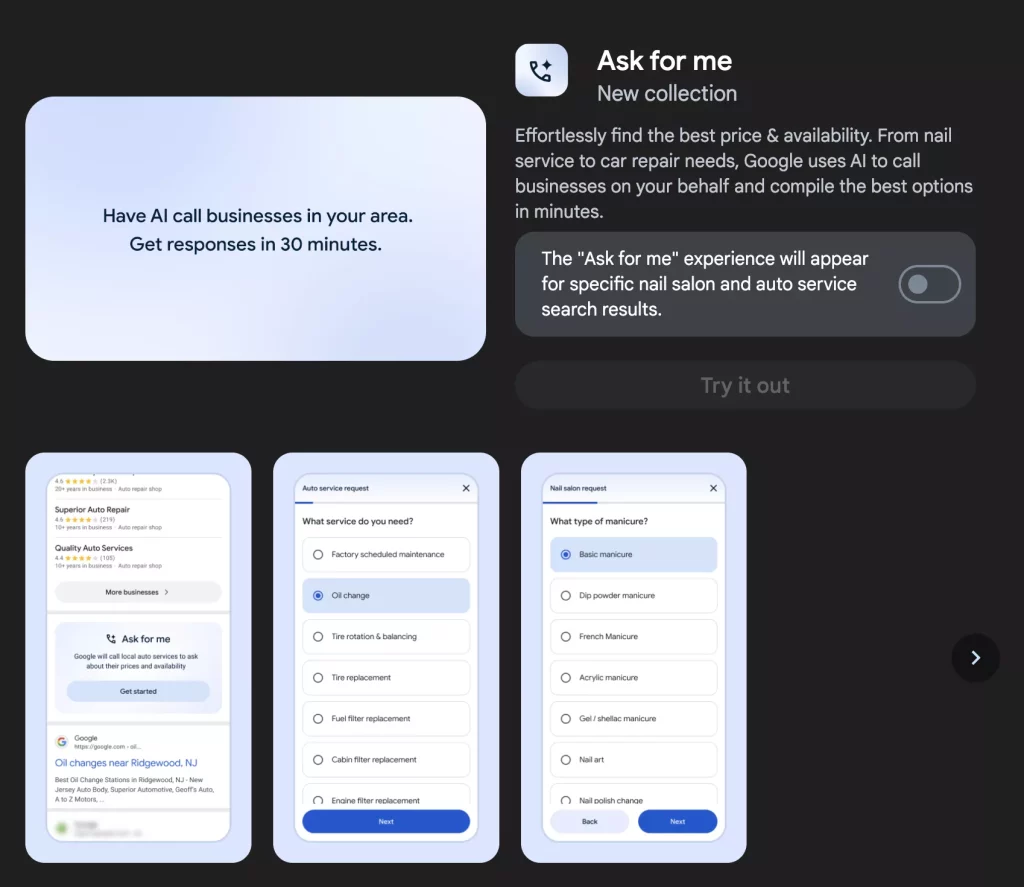
Key highlights:
- Launch of Google’s voice AI for business calls
- Impact on customer service and interactions
- New requirements for business accessibility
- Opportunities for digital marketing integration
📌 What if your customers never had to wait on hold again? What if an AI assistant could handle your business calls, schedule appointments, and respond to customer queries—without needing human intervention?
Google has just revealed its new AI phone assistant, ‘Ask for me’ that can make calls, book appointments, and handle customer questions without human help.
For digital marketing and customer service teams, this is a massive shift in how we’ll handle customer interactions.
The assistant can make business calls on behalf of customers, check opening times, and handle basic queries — all while sounding surprisingly natural.
What can this AI assistant actually do? Are we ready for AI to handle our phone calls?
- Handle everyday tasks_ Books appointments, checks stock, and confirms business hours
- Cut waiting times: Customers don’t need to wait on hold or make calls during business hours
- Work with booking systems: Integrates with digital calendars and scheduling tools
- Sound human-like: Uses natural conversation patterns that feel comfortable and familiar
🚀 Our predictions & takeaways from this digital marketing update:
- Voice Search & assistants will change SEO & digital marketing: As AI assistants become more popular, marketers need to optimise content for voice search queries and structured data formats to ensure AI can easily retrieve information about their business.
- Opportunity for AI-Integrated lead generation: Could businesses use AI not just for receiving calls, but also for making outbound sales and lead-generation calls? This could open up new possibilities for AI-driven marketing automation.
- Check your business listings: Make sure your Google Business Profile is current and complete, explore other browsers and native technologies like Bing by simply exporting your Google Business profile.
2. Meet Otterly AI, the new AI brand search tracker

Key highlights:
- New tool for monitoring AI search visibility
- How brands appear in AI-generated results
- Impact on digital marketing tracking
- Future of search visibility measurement
📌 AI is reshaping how people search for information—so how do you track whether your brand is actually showing up in AI-generated search results?
Traditional SEO tools aren’t keeping up with how AI is changing search. That’s where Otterly AI comes in: a new tool that shows marketers exactly how their brand appears in AI-generated search results.
Why does this matter? Because AI search works differently. Instead of showing a list of links, AI search creates direct answers that pull information from multiple sources. If you’re not in these summaries, you’re missing out on valuable visibility.
What makes Otterly AI different:
- Tracks AI mentions: Shows where your brand appears in AI search overviews and chat responses
- Watches the competition: Reveals which brands are winning in AI search results
- Spots patterns: Helps you understand changes in AI visibility over time
- Finds gaps: Points out where you could improve your content for better AI visibility
🚀 How to make the best out of this tool in your daily tasks:
- Do a morning scan: Check your brand’s AI visibility for your top search terms and spot any overnight changes that need attention
- Run weekly comparisons: Review how you stack up against competitors in AI results and plan your content updates accordingly
- Track monthly metrics: Add AI visibility stats to your digital marketing reports, including brand mentions and topic coverage
- Update content regularly: Check how your existing content appears in AI results and improve pieces that aren’t performing well
- Connect your data: Compare your AI visibility with traditional SEO metrics and analytics to see the complete picture
Social Media Updates
1. TikTok ban in the US: The irony of Americans fleeing to a Chinese app
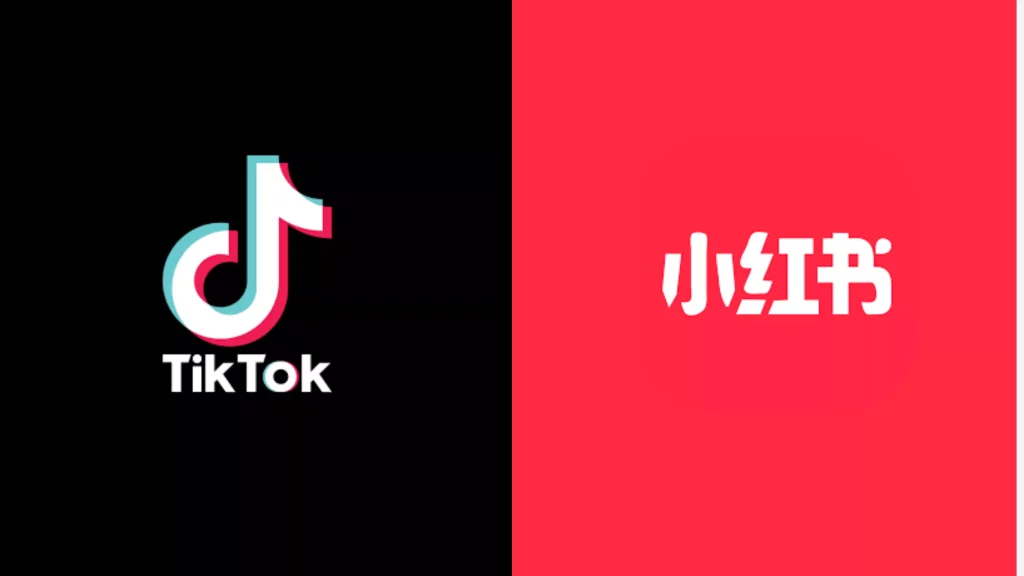
Key highlights:
- Well, this is awkward — Americans are moving to another Chinese app
- Why we should care about first-party data now
- The funny truth about privacy concerns
- What marketing teams need to do next
📌 What does the TikTok controversy tell us about data privacy in 2025? Are users genuinely concerned about data security, or is it just a political debate that fails to change consumer behaviour?
The proposed ban on TikTok in the US—triggered by concerns over data privacy and national security—has led to an unexpected and ironic twist. Rather than abandoning short-form video platforms altogether, millions of American users have voluntarily migrated to Xiaohongshu (Little Red Book), another Chinese social media app.
Yes, you read that correctly. The same users who were supposedly concerned about how TikTok collects and shares their data have now moved to a platform owned by a Chinese company, known for its influence on shopping, lifestyle content, and community-driven engagement.
Let’s pause for a moment—wasn’t the entire debate about limiting China’s access to American user data? And yet, in an ironic twist, US users have willingly signed up for another Chinese-owned platform, handing over their personal data once again.
What’s really interesting is what this tells us about how people actually behave online. Let’s be honest: most of us care more about good content than data privacy, even if we say otherwise.
What’s really going on:
- We’re all a bit contradictory: We say we care about privacy, then hand over our data for a fun new app
- Content is still king: If it’s entertaining enough, people will download it anyway
- Everyone collects data: Let’s not pretend it’s just Chinese apps doing this
- Users jump ship quickly: The moment something better comes along, they’re gone
It’s not about TikTok vs Xiaohongshu, it’s about the future of first-party data
While the TikTok ban debate continues, what businesses should really focus on is how first-party data is becoming the most valuable asset in the digital marketing world.
With AI-driven search, platform privacy shifts, and the decline of third-party cookies, businesses need alternative ways to collect, store, and leverage customer data ethically.
🚀 What this means for your marketing:
- Personal data is the new currency: Think of personal data like a premium currency: your customers are savvy investors who’ll only “spend” their data with brands that offer genuine value in return — so make sure you’re worth the investment.
- First-party data is your new best friend: With Google changing its cookie policy, you need your own data
- Don’t put all your eggs in one basket: Having all your content on one platform is getting risky
- Build direct relationships: Subscribers databases from first-party cookie channels like web push notifications, keep nurturing your email lists and loyalty programmes are more valuable than everr
2. Instagram reveals its top ranking signals for 2025
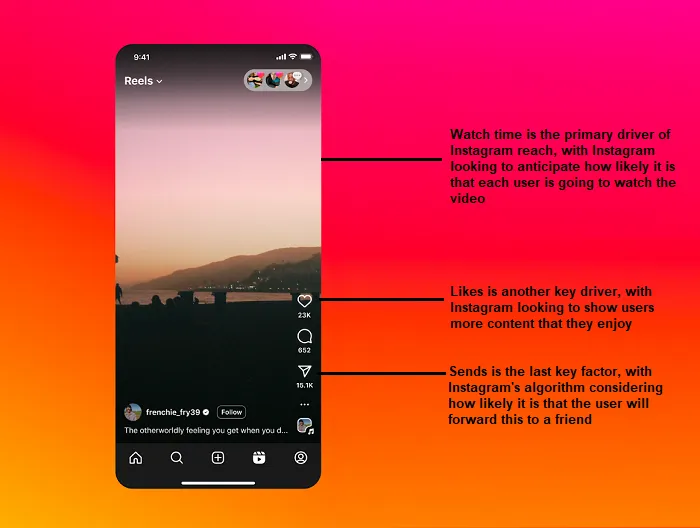
Key highlights:
- Direct insights from Instagram’s chief
- Three main factors affecting content reach
- Different signals for followers vs new audiences
- What this means for your content strategy
📌 Have you ever felt like Instagram’s algorithm is a mystery? Why do some posts get thousands of views while others barely reach your audience?
Instagram’s head Adam Mosseri has shared something juicy: the three key factors that actually determine your content’s reach. And no, it’s not what most marketers have been focusing on.
Here’s something interesting: Instagram doesn’t use just one algorithm to decide what content succeeds. Each part of the app: Feed, Stories, Reels, and Explore — has its own set of rules for pushing content to users.
This matters because using the same approach across all formats isn’t going to get you the best results. Each part of Instagram needs its own strategy.
Let’s look at how it works:
- Feed content works differently from Stories
- Reels have their own ranking system
- Explore uses unique signals to suggest content
- Each format rewards different types of engagement
Think of it like this: Instagram isn’t one stage — it’s multiple channels, each with its own audience preferences and behaviour patterns.
The big three that matter most:
- Watch time: How long people spend with your content
- Likes: But they matter more for reaching your existing followers
- Sends: Crucial for reaching new audiences
Here’s the interesting bit: comments aren’t as important as we thought. Instead, the algorithm cares more about whether people share your content with others — which makes sense when you think about it.
🚀 What this means for your marketing:
- Think audience-first: Create content worth sharing, not just liking
- Focus on quality time: The longer people spend with your content, the better
- Plan for sharing: Make content that people will want to send to friends
- Remember carousel posts: They naturally increase watch time
Final thoughts, from us:
Here’s the thing about data: your content isn’t just competing for attention, it’s competing for your audience’s time and trust. Make it worth their while.
About Frizbit
1. Your 2025 holiday marketing campaign planner – and template, is here
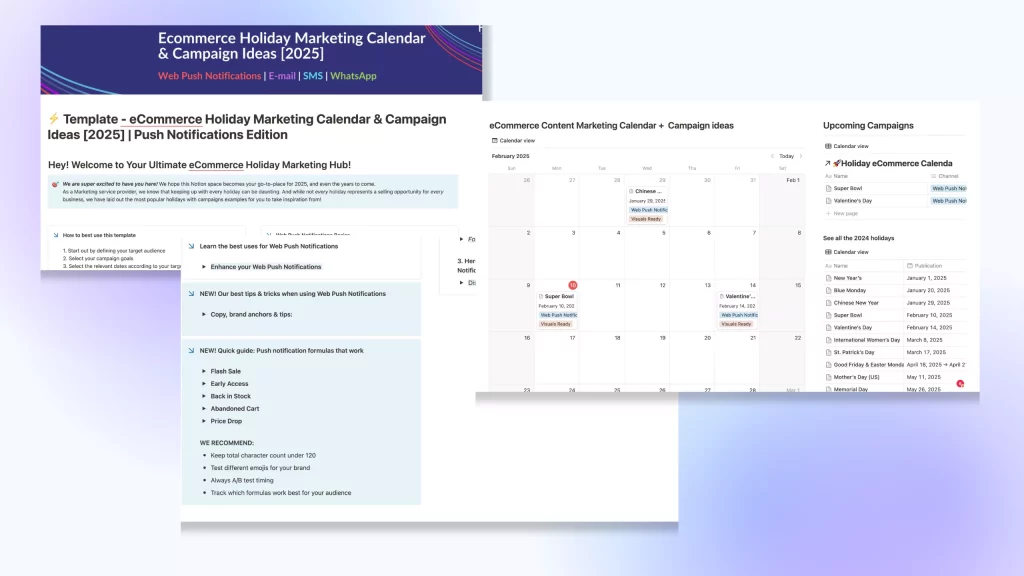
📌Is your eCommerce ready for 2025’s biggest shopping moments?
Let’s talk about something every digital marketer knows: holiday campaigns can make or break your yearly targets.
With 70% of eCommerce revenue generated during peak shopping periods, getting your timing right is crucial.
Here are the good news: We’ve updated our Holiday Marketing Calendar to help you plan smarter and more effectively.
By using our Holiday Marketing Calendar Template, you can:
✔️ Prepare for the year’s most profitable moments: from Valentine’s Day to Cyber Monday, and beyond.
✔️ Avoid last-minute rush and budget miscalculations: ensuring you launch your promotions in time to capture early-bird shoppers.
✔️ Strategically distribute your marketing efforts: balancing campaigns across web push notifications, email, SMS, and retargeting.
✔️ Boost engagement & sales: by crafting compelling offers aligned with your audience’s shopping behaviour.
What’s New in the 2025 Edition?
Updated Key Shopping Dates: Never miss out on a major eCommerce opportunity. We’ve revised all the key global and regional shopping holidays to help you schedule campaigns effectively.
Campaign optimisation tips: Learn how to craft high-converting campaigns for each event, ensuring your messaging, timing, and offers hit the right note.
Most used campaigns formulas that work: From early-bird offers to last-minute deals, we’ve included our top-performing campaign templates, complete with timing suggestions and messaging examples that have proven successful across different industries and events.
Bonus Tip: If you want to automate your marketing campaigns and drive higher engagement, explore Frizbit’s marketing automation solutions, designed to help you re-engage users through web push notifications, SMS, and email— all without relying on ads or third-party cookies.
Don’t miss Frizbit’s monthly blogs and explore our latest Digital Marketing Updates and News!
